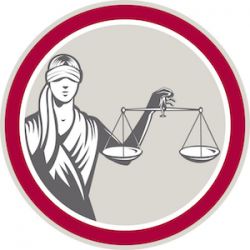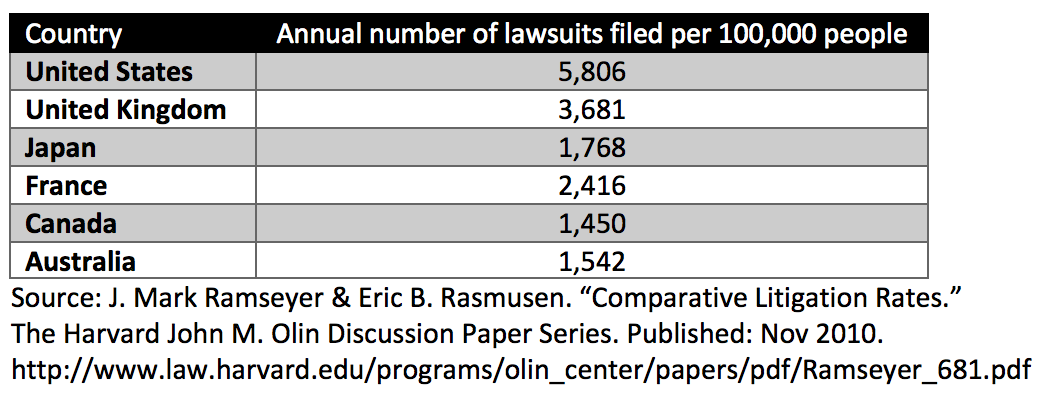 |
| Justice: Blind and scientifically illiterate. (Credit: Storyblocks) |
I was smacked in the face by this reality when I was called into jury duty in 2011. The case involved a car accident, and the standard in Washington State for the jury to decide in favor of the plaintiff is a "preponderance of evidence," which is a fancy way of saying, "51 percent." Essentially, a coin toss decides if the plaintiff wins a bunch of money.
The judge asked if any of the potential jurors objected to that. I did. "I'm a scientist," I explained, "and I need more evidence than that." So, I was shown the door.*
That experience taught me that scientists and lawyers live in two completely different worlds. Scientists want 95% confidence and margins of error; lawyers want 51% confidence. Scientists want all evidence to be considered; lawyers do everything in their power to dismiss evidence they don't like. Scientists rely on reports written by experts; lawyers often consider them inadmissible hearsay. At their best, scientists pursue truth; at their best, lawyers pursue the truth, so long as it benefits the client.
These are fundamentally irreconcilable worldviews that are forever destined to be in conflict. And the lawyers are winning.
Will Lawyers Destroy Science?
Consider Mark Jacobson, the climate scientist who is suing a prestigious journal for $10 million because it hurt his feelings. There is good reason to believe that the lawsuit will be dismissed, but not before lawyers have collected a nice fee for themselves. Jacobson's attorneys and the journal's attorneys can both make a lot of money arguing with each other, even if the suit never actually goes to trial. Routinely, lawyers are required to solve problems that they themselves created. If something like this were to occur in any other area of life, it would be called racketeering.
Recently, RealClearScience wrote an article that covered a paper published in the journal Case Reports in Gastrointestinal Medicine about how a particular herbal tea was linked to acute liver failure. The maker of the tea threatened to sue RealClearScience, which pulled the article because it didn't want to deal with a lawyer.
In both examples, the scientific enterprise is collateral damage. The mere threat of a lawsuit can be used to shut down scientific debate. This is deeply troubling.
A Lawsuit-Happy Nation
Unfortunately, there are no signs of such lawsuit abuse stopping. Researchers at Harvard's John M. Olin Center for Law, Economics, and Business published a report that showed that the number of lawsuits filed in the United States far exceeds those of similar countries:

On a per capita basis, the lawsuit rate in the U.S. is higher than Canada (by 4 times), Australia (3.8x), Japan (3.3x), France (2.4x), and the UK (1.6x).
Beware, science. A lawsuit-happy nation turns its eyes to you.
*Note: Mission accomplished. I didn't want to be there, anyway.
The judge asked if any of the potential jurors objected to that. I did. "I'm a scientist," I explained, "and I need more evidence than that." So, I was shown the door.*
That experience taught me that scientists and lawyers live in two completely different worlds. Scientists want 95% confidence and margins of error; lawyers want 51% confidence. Scientists want all evidence to be considered; lawyers do everything in their power to dismiss evidence they don't like. Scientists rely on reports written by experts; lawyers often consider them inadmissible hearsay. At their best, scientists pursue truth; at their best, lawyers pursue the truth, so long as it benefits the client.
These are fundamentally irreconcilable worldviews that are forever destined to be in conflict. And the lawyers are winning.
Will Lawyers Destroy Science?
Consider Mark Jacobson, the climate scientist who is suing a prestigious journal for $10 million because it hurt his feelings. There is good reason to believe that the lawsuit will be dismissed, but not before lawyers have collected a nice fee for themselves. Jacobson's attorneys and the journal's attorneys can both make a lot of money arguing with each other, even if the suit never actually goes to trial. Routinely, lawyers are required to solve problems that they themselves created. If something like this were to occur in any other area of life, it would be called racketeering.
Recently, RealClearScience wrote an article that covered a paper published in the journal Case Reports in Gastrointestinal Medicine about how a particular herbal tea was linked to acute liver failure. The maker of the tea threatened to sue RealClearScience, which pulled the article because it didn't want to deal with a lawyer.
In both examples, the scientific enterprise is collateral damage. The mere threat of a lawsuit can be used to shut down scientific debate. This is deeply troubling.
A Lawsuit-Happy Nation
Unfortunately, there are no signs of such lawsuit abuse stopping. Researchers at Harvard's John M. Olin Center for Law, Economics, and Business published a report that showed that the number of lawsuits filed in the United States far exceeds those of similar countries:

On a per capita basis, the lawsuit rate in the U.S. is higher than Canada (by 4 times), Australia (3.8x), Japan (3.3x), France (2.4x), and the UK (1.6x).
Beware, science. A lawsuit-happy nation turns its eyes to you.
*Note: Mission accomplished. I didn't want to be there, anyway.
No comments:
Post a Comment